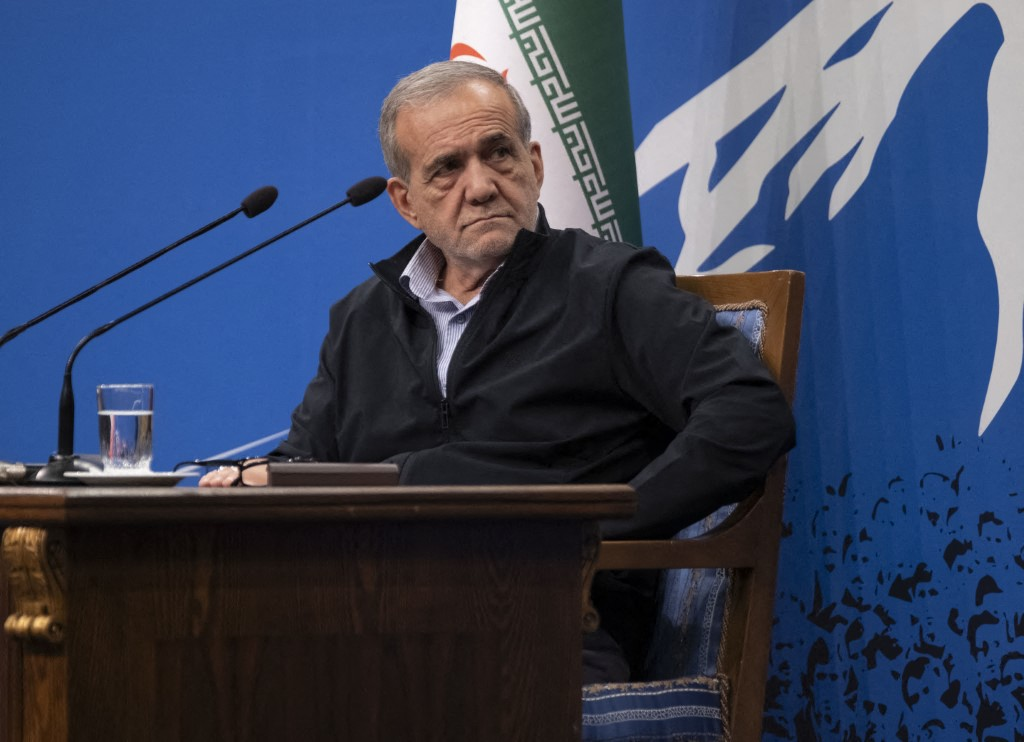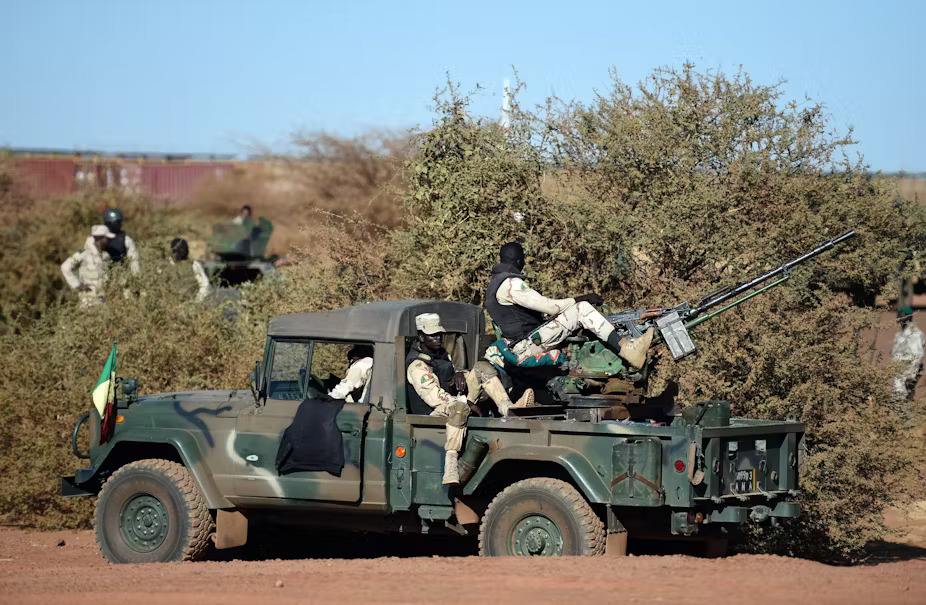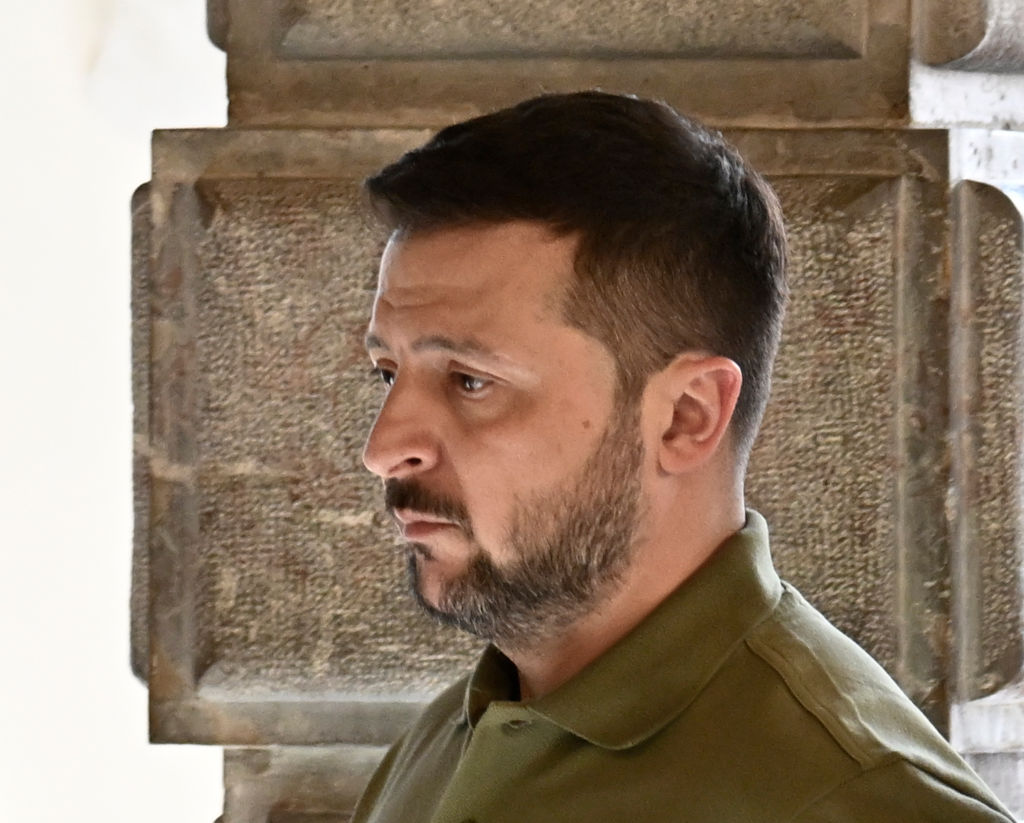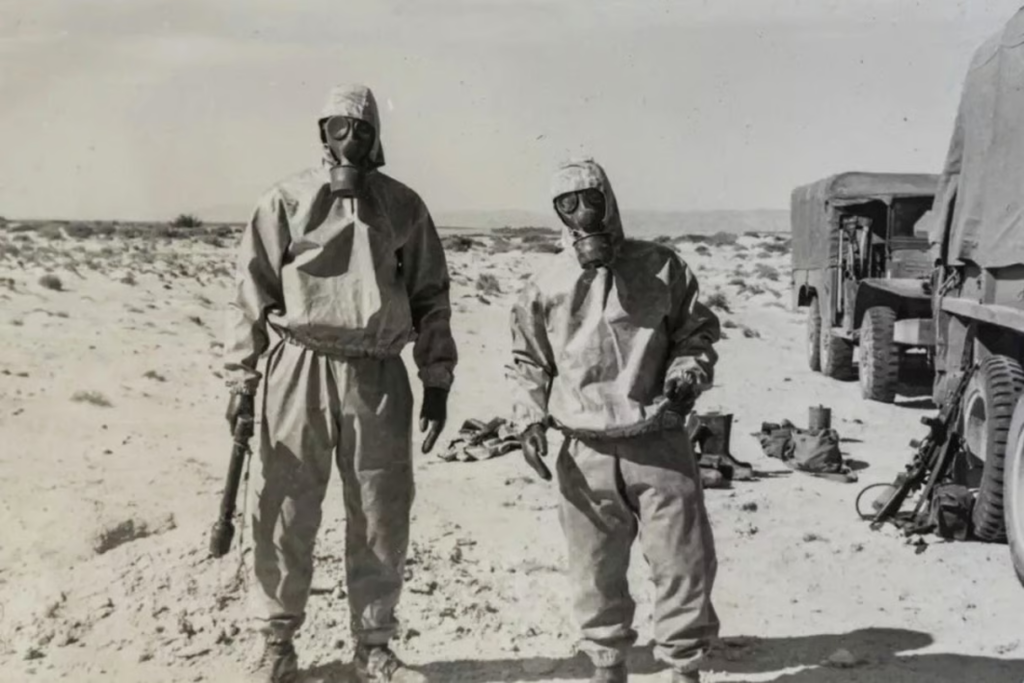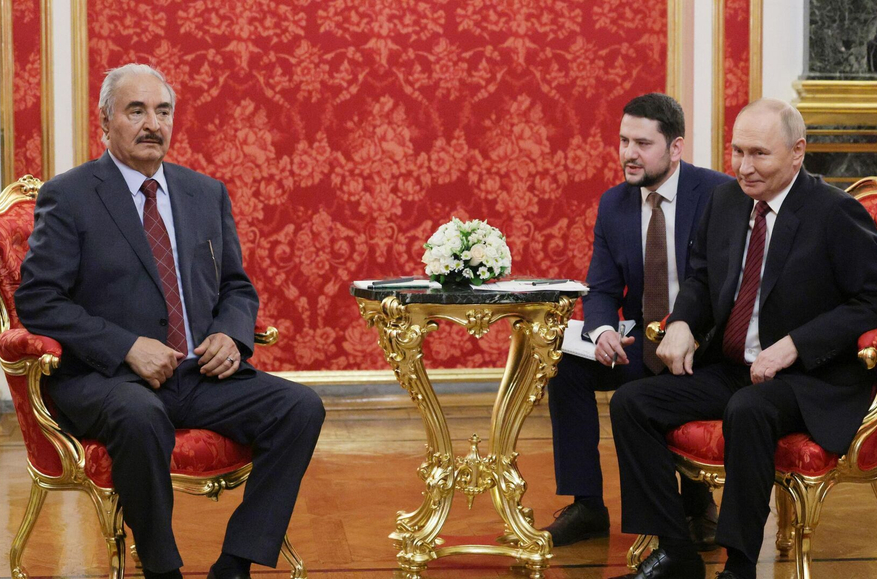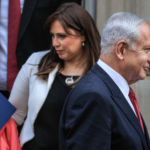
It is long past time Tzipi Hotovely was expelled from London. Starmer’s inaction proves he has no intention of stopping his support for Israel’s crimes in Gaza.
2WEF3RT Benjamin Netanyahu, Prime Minister of Israel, Ambassador Tzipi Hotovely (behind) visit to the United Kingdom, London, UK
Tzipi Hotovely leaves 10 Downing Street with Benjamin Netanyahu in 2023. (Photo: Imageplotter / Alamy)
Keir Starmer has been desperately searching for ways to make it look as if his government is getting tough with Israel.
As public anger grows at images from Gaza of emaciated children, echoing historic images of Jewish children being starved in Nazi concentration camps like Auschwitz, the British prime minister needs to be seen doing something.
There are many ways he could take meaningful action to end the UK’s complicity in Israel’s saturation bombing of Gaza and its starvation of the enclave’s population.
He could stop shipping arms to Israel, and stop transferring weapons from the United States and Germany. He could stop supplying Israel with intelligence from British spy planes that have been constantly operating over Gaza from RAF’s Akrotiri base on Cyprus.
He could recognise Palestine. He could prosecute British-Israeli soldiers taking part in the genocide. He could stop hosting suspected Israeli war criminals in London, as Declassified has documented. He could tear up special trade agreements with Israel. The list goes on.
Has he done any of this? No.
Sham sanctions
Nominal “punishment” came last September when Starmer very publicly announced a cut in UK arms sales to Israel. He hoped no one would read the small print: it amounted to a paltry eight per cent reduction.
But even this turned out to be a sham. In fact, as data released last month showed, British arms sales to Israel hit record levels in the three months following the announcement.
The only other significant sanction against Israel was not even tangible. Starmer declared last month he was suspending – that is, postponing – a new round of trade talks with Israel until it stopped blocking aid to Gaza.
Israel’s ambassador to the UK, Tzipi Hotovely, was summoned to the Foreign Office to have the decision communicated to her.
In fact, that slap on the wrist appears to have been chiefly spin too.
Shortly afterwards, the UK embassy in Israel tweeted an image of Ian Austin, the government’s trade envoy to Israel, on a visit to the Israeli city of Haifa.
When questioned by the Financial Times about why Austin was in Israel, Starmer’s government said Britain was still keen to maintain its existing business relationships.
The truth is that even the government’s highly circumscribed “sanctions” against Israel are nothing more than hollow threats. It has been, and continues to be, business as usual with Israel throughout the Gaza genocide.
Propagandist for genocide
What Starmer and his foreign secretary, David Lammy, should have done – had they even the slightest interest in distancing themselves from Israel’s genocidal extremism – is not just summon Hotovely for another apologetic chat but actually demand her expulsion.
Such an action is necessary not chiefly because she is the main representative in London of a genocidal Israeli government. There is an argument to be made that the UK government needs direct diplomatic channels of communication with Israel, even during a genocide.
But unlike her predecessors, Hotovely is not a diplomat. She is a hard-right politician – a loyal ally of Israeli prime minister Benjamin Netanyahu – who has served for the past 20 months as the leading apologist and cheerleader for genocide on British soil.
Her constant incitement has been in flagrant violation of the 1948 Genocide Convention to which the UK is a signatory. Britain has a legal obligation to remove her from a post in which she has fomented support in Britain for the most serious crimes against humanity.
The UK is effectively sheltering a war crimes suspect.
Her influence is likely to have contributed to the commission of crimes by British citizens travelling abroad to join the Israeli military.
After her expulsion, Israel would be entitled to replace her with a real diplomat, one who operates within the confines of British and international law.
But Britain should not be hosting a foreign official acting as a propagandist for genocide.
An online petition, set up in December 2023, calling for the Israeli ambassador to be expelled has attracted more than 170,000 verified signatures – an unprecedented public display of disgust at her continuing presence in the UK.
Inciting violence
It is preposterous for Starmer to blame Netanyahu for “horrific” and “intolerable” scenes in Gaza when one of the Israeli prime minister’s most fanatical aides is comfortably ensconced in London justifying these horrors.
It was Hotovely who less than three months into Israel’s slaughter in Gaza rationalised its crimes by claiming a supposed Hamas underground “terror city” was connected by tunnels to “every school, every mosque, every second house”.
The journalist interviewing her interjected that this was “an argument for destroying the whole of Gaza, every single building”. Which, of course, is exactly what Israel has gone on to do.
Hotovely responded: “Do you have another solution?”
Her “solution” has left Gaza without any of the basic infrastructure – homes, hospitals, schools, bakeries, government offices, water treatment plants – needed for its population to survive.
She was inciting again last month when she appeared on the popular online chat show Piers Morgan Uncensored. Under unusually tough questioning from Morgan, she asserted in defiance of international law that Israel was “allowed to attack hospitals”.
When Morgan pressed her repeatedly to explain how she could claim Israel has a low civilian to combatant kill ratio when she had no idea how many children Israel had killed in Gaza, Hotovely twice responded: “That’s irrelevant.”
As Morgan pointed out, Hotovely’s dismissal of the death toll among Gaza’s children suggested she regarded those deaths as inconsequential. A less benign reading of her refusal to answer was that she sees those children as legitimate targets.
The official number of children killed – almost certainly a large undercount – is 16,500. Last week a senior Unicef official assessed there may be in excess of 50,000 children dead or injured.
‘All the land is ours’
Hotovely’s incitement did not come out of nowhere. When Netanyahu appointed her as his deputy foreign minister in 2015, she insisted that the Palestinians would never be allowed a state on any part of their historic homeland.
She said: “This land is ours. All of it is ours.”
In 2019, she accused the fervently Israel-supporting British Board of Deputies of “working against Israeli interests” after it tentatively expressed support for a “viable Palestinian state”.
She again reiterated that position in December 2023, as ambassador, saying she did not accept the positions of the UK government and the United Nations in support of an independent Palestinian state.
She referred to Palestinians as a “radical people” – a racist and dehumanising formulation intended to suggest that there could be no peace with the Palestinians and that Israel was therefore justified in slaughtering them.
Making sure no one could misunderstand what she means by the extent of Israel’s sovereignty, she has observed: “Between the sea and the Jordan River, there needs to be one state, only the state of Israel”.
Notably, in an act of pure projection, Hotovely has claimed that, in contrast to her own ethnic supremacist agenda, pro-Palestinian demonstrators who call for equal rights for Jews and Palestinians in the same area – “between the river and the sea” – are calling for genocide.
In late 2023, she claimed Jews “don’t feel safe” on London’s streets because of the large marches against Israel’s genocide in Gaza: “They [British Jews] see the same jihadi ideology on the streets of London as in Gaza.”
Hotovely’s history
Hotovely made her name in Netanyahu’s Likud party early on, when she was still a young backbench MP. In 2009, she openly called for the annexation of the West Bank, before that position all but became official Israeli policy.
In 2013 she developed a blueprint for annexation in an essay titled “The five-stage plan for the Greater Land of Israel”. It included a provision in which only those serving in Israel’s army would qualify for citizenship – a transparent way to exclude Palestinians from meaningful rights.
Her fanaticism earnt her the position in 2020 of Israel’s first-ever minister for the settlements. She views these illegal, Jewish-only colonies – declared illegal by the International Court of Justice last year – as a weapon to dispossess Palestinians and deprive them of any hope of Palestinian statehood.
Hotovely is openly Islamophobic and denies the history of the Palestinian people. In 2020, shortly after taking up her position as ambassador, she called the Nakba – the well-documented expulsion in 1948 of hundreds of thousands of Palestinians by the newly declared state of Israel – an “Arab lie”.
She has been supportive of hardline Jewish racial purity groups, such as Lehava, that try to stop relationships between Jews and non-Jews.
And she backs Israel’s takeover of the Al-Aqsa Mosque compound in occupied East Jerusalem, one of the most important Islamic sites in the world. Such a move could set the Middle East on fire.
Radicalising UK Jews
The Israeli ambassador has been undermining British foreign policy towards Israel and Palestine ever since she was appointed to the post five years ago. At that time, there was a campaign by British Jews to stop her bringing her extremist agenda to the UK.
Liberal Jewish community leaders were appalled at the prospect. Jeremy Beecham, a Labour peer, warned that her appointment would “do nothing to win friends in the UK – or indeed any other reasonable country”.
Notably, Britain operates a draconian Prevent programme ostensibly aimed at stopping the radicalisation of minority communities. In practice, it has focused on targeting – and stigmatising – British Muslims, presenting them as especially susceptible to extremism and supportive of terrorism.
However, Hotovely illustrates the way the very same British establishment so obsessed with curbing Muslim extremism not only tolerates dangerous ideological influences on British Jews but actively cooperates with those influences.
Further, those radicalised by Hotovely’s incitement against Palestinians are largely insulated from criticism. Anyone trying to object to her brazen racism – or its impact on attitudes among British Jews – faces being smeared as an antisemite.
In late 2021 pro-Palestinian solidarity activists protested her racist statements outside the London School of Economics as Hotovely gave a lecture there. As she emerged to a waiting car, demonstrators shouted: “Shame on you!” and “Free Palestine!”
The then ruling Conservative government and the opposition Labour party rushed to her defence, denouncing the protest as antisemitic – and, in a moment of peak cognitive dissonance, as an attack on free speech.
Lisa Nandy, then shadow foreign secretary and now the secretary of state for culture, media and sport, called Hotovely’s treatment “appalling”. While Nick Thomas-Symonds, then shadow home secretary and now head of the cabinet office, even more egregiously smeared the protesters. “Antisemitism has no place in our society,” he said.
Time to go
The British establishment has further rallied to her defence since she became Israel’s spokesperson in the UK for the genocide in Gaza.
In March 2024 the Metropolitan police imposed a wide exclusion zone around the area in London in which she lives to stop a group of anti-zionist Jews holding protests outside her home.
The voices calling for her expulsion have grown. In January, the former Labour shadow chancellor John McDonnell called for Israel’s complete isolation, and Hotovely’s removal.
He said: “We have an Israeli ambassador who’s an advocate of Greater Israel, refuses to recognize the Palestinian state, defies all the UN resolutions that have been passed about how we can secure that peace, and she still remains in this country. Why aren’t we expelling the Israeli ambassador?”
Zarah Sultana, an MP sitting as an independent after she was expelled from the Labour party by Starmer for opposing his austerity cuts, has also called for Hotovely’s expulsion, pointing to her “genocidal rhetoric”.
After the petition against Hotovely reached 100,000 signatures, it qualified for a debate in parliament. No such debate has happened. Nor is it likely to.
The truth is, whatever rhetoric the Starmer government deploys to soothe public anger, the British establishment considers its alliance with Israel – and Israel’s patron in Washington – as far more important than the lives of 2 million Palestinians in Gaza.


